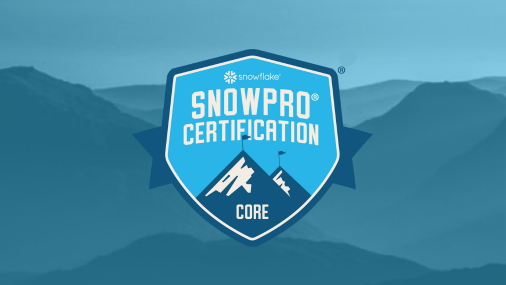COF-C02
SnowPro® Core Certification (COF-C02)
The SnowPro® Core Certification will validate knowledge of the Snowflake AI Data Cloud.
Certification

This exam version is retiring and is being replaced by SnowPro Core (COF-C03). For more information review these FAQs.
SNOWPRO CORE CERTIFICATION OVERVIEW
This certification will test the ability to:
- •Perform data loading and transformation
- •Monitor and optimize virtual warehouse performance and concurrencies
- •Execute DDL and DML queries
- •Use structured, semi-structured, and unstructured data
- •Use cloning, Time Travel, and Fail-safe to manage data
- •Facilitate Secure Data Sharing among different Snowflake accounts
- •Design and manage the structure of a Snowflake account
SNOWPRO CORE CANDIDATE
6 or more months of knowledge using Snowflake
SnowPro FAQs
Frequently Asked Questions
Learning Tracks
Snowflake Learning Journey
You know what you’re looking for, and we have curated paths to help you achieve whatever your learning goals. From skill building badges, to preparation for the SnowPro core certifications we have you covered.
Snowflake Education Services includes Instructor-Led Training, SnowPro Certifications, and this online, on-demand educational courses website. Our on-demand courses are branded as "Snowflake University." Snowflake University (aka Uni) offers a badge program called Hands-On Essentials as well as other courses.
©2026 Snowflake Inc. All Rights Reserved